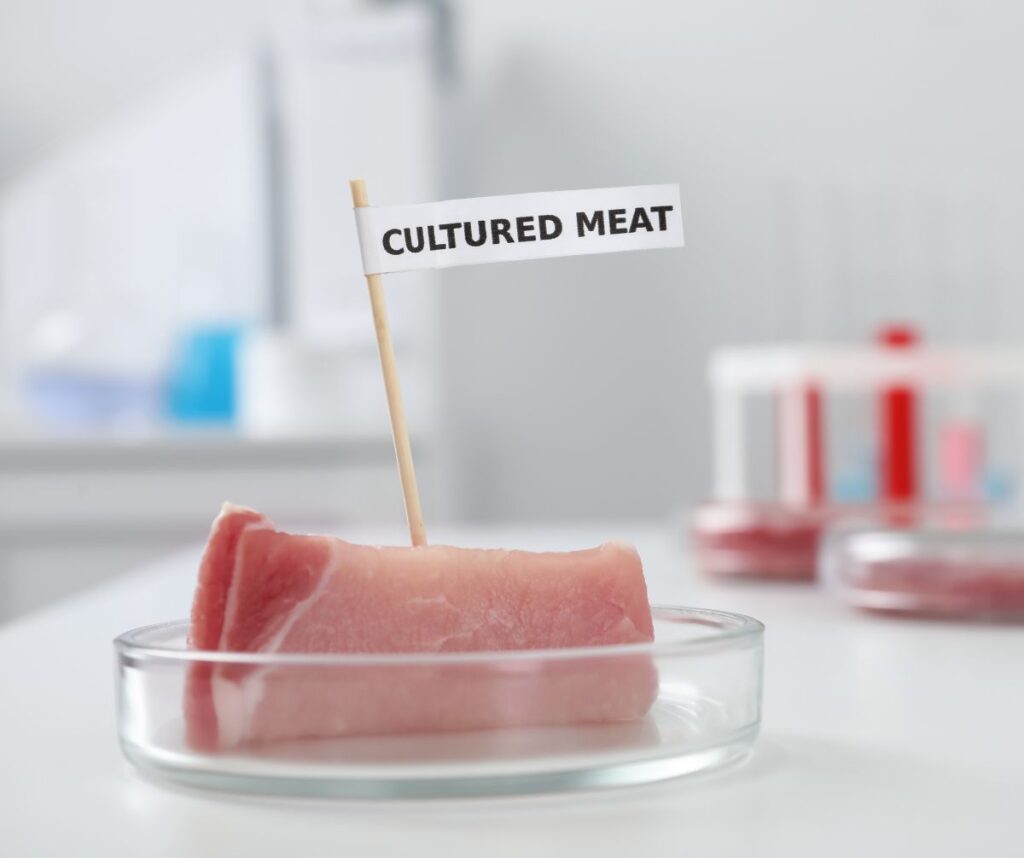
Lab-grown meat is considered a solution to environmental issues caused by traditional livestock farming.
However, a new study by UC Davis researchers suggests it may not be as eco-friendly as thought, with up to 25 times the climate impact of real beef.

The Environmental Impact of Real Meat
Beef production has a large carbon footprint due to the need for water, animal feed, and forest clearing. This leads to greenhouse gases, water scarcity, and deforestation. Lab-grown meat is seen as an eco-friendly alternative to address these concerns.
The Study’s Findings
The Department of Food Science and Technology, University of California, Davis study warns of high environmental impact from refined growth medium in lab-grown meat production, potentially exceeding median beef production.
Lab-grown meat has a higher global warming potential than retail beef, ranging from 246 to 1,508 kg of CO2 equivalent per kilogram. This is true for different types of animal cells used in the process.
The Need for Further Research
The Good Food Institute, a non-profit advocating for plant/cell-based substitutes to animal products, cautions against an unverified study. The study is not peer-reviewed and may not be accurate as it does not align with current ingredient procedures for cell culture media.
Lab-Grown Meat vs. Plant-Based Alternatives
Lab-grown meat and plant-based “meat” products are not the same. The former is made from animal cells and the latter uses vegan ingredients to imitate the taste and texture of real meat.

Although lab-grown meat is considered more ethical than traditional meat because it only requires a small tissue sample, some vegans and vegetarians still avoid it due to its animal origin.
Scaling Up Production: Challenges and Consequences
Lab-grown meat has potential, but scaling up to industrial production poses challenges due to high energy requirements and production of growth medium.
The study includes an illustration depicting the energy-intensive process of producing animal cell-based meat.
A recent study compared energy requirements for lab-grown meat production with beef, but scaling up animal cells also has an environmental impact.
What do you think of these Lab-Grown meats?